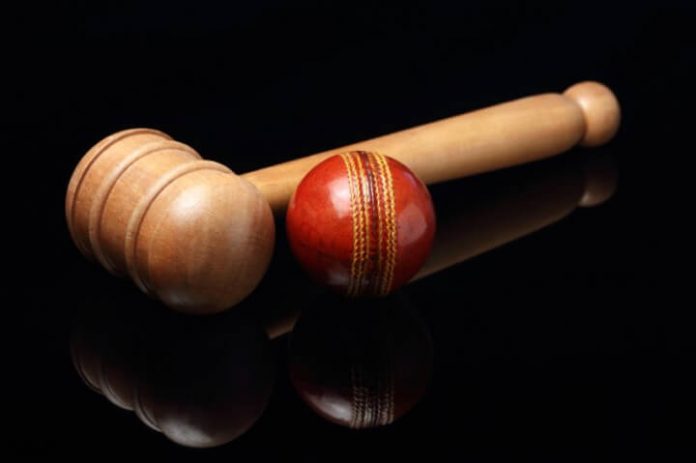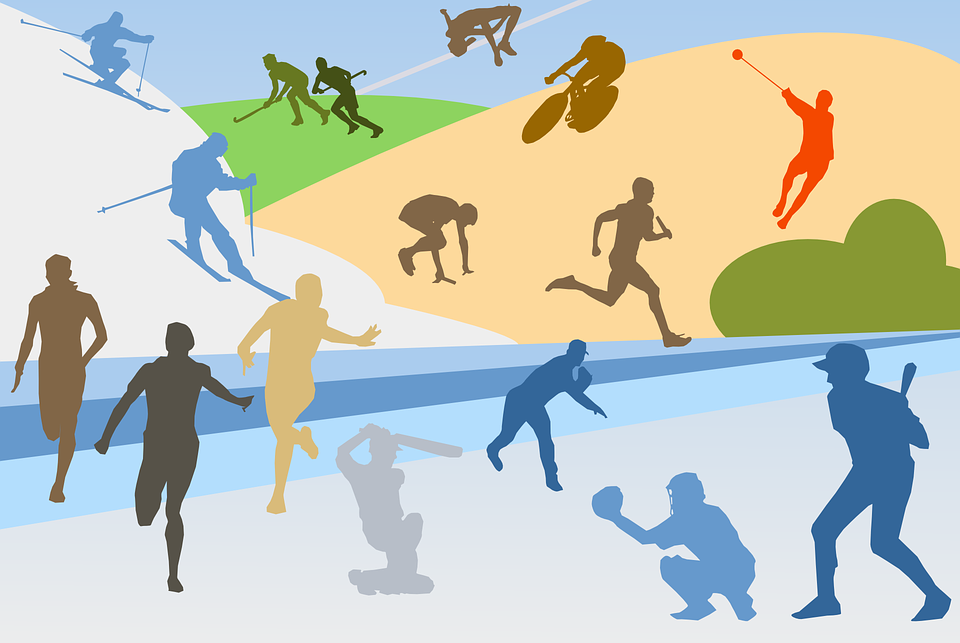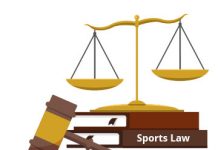This article is written by Pratap Alexander Muthalaly, a student of The Government Law College Trivandrum. This article looks into the role of agents and intermediaries in sports. It analyses the various laws that govern agents both at the national and international level.
Table of Contents
What is a sports agent
A sports agent is essentially an intermediary who acts on the behalf of professional athletes, managers/coaches and sports organisations in third party negotiations. The role of an agent is all-encompassing and can involve anything from negotiating contracts and providing legal advice to providing career advice and moral support, especially in the case of young professional athletes. Sports agents are essentially the connecting link between coaches, athletes, clubs and other sports institutions.
Specific functions of an agent
- Negotiating contracts and salaries
This is one of the primary responsibilities of a sports agent. This essentially involves reviewing market trends and making updates on player contract extensions and also dealing with offers and counteroffers.
- Player finances and tax management
Agents are also involved in helping their clients build up assets, manage finances, make payments and negotiate tax.
- Help plan, guide and navigate the careers of professional athletes
Agents are also actively involved in coordinating the careers of their clients and also helping them choose the clubs and institutions that suit them best.
- Help find sponsorship and endorsement deals
Sports agents also play a large role in the endorsement and marketing of their clients. They play a large role in building the brands of their players.
- Scouting and recruiting the best talent in their specific sport
Agents also have to actively scout the best talent in the specific sport that they specialise in. they have to actively scout talent in order to grow their business and attract new clients.
Laws governing sports agents
European Union
In the European Union (EU), the activities of sports agents are regulated by international sports federations and national governments. Most European member states rely on contract law, this includes the laws and provisions governing private job placements and also competition law to regulate the activities of sports agents. Sports agents are also governed by Articles 49, 81 and 82 of the European Commission Treaty.
On a state level, the laws regulating agents and intermediaries can be quite varied. In countries like France and Portugal, there are specific legislative provisions concerning sports agents. Meanwhile, in Germany, Austria and the Netherlands there are general legislative and regulatory provisions governing private employment services. Then there are countries like the UK and Denmark where sports agents are covered under the wider common law provisions.
The initial framework laid across Europe in terms of player agent dealings was primarily designed to protect the pro athlete from exploitation. In countries where rules governing sports agents exist, a wide variety of issues are addressed (remuneration, agent fee, licensing etc).
Most national federations also rely on the international guidelines set by the International governing bodies of their respective sport. A perfect example would be the guidelines laid down by the Fédération Internationale de Football Association (FIFA).
In 1991 FIFA introduced regulations that required all agents to be registered under them. These rules were later altered in 2001 and agents were further required to register with the national association where they resided in or the association of the place they originated from. Changes were once again made in 2008 by FIFA only for them to be amended once more in 2015.
In 2015 the FIFA Players Agents Regulations were replaced by the FIFA Regulations on Working with Intermediaries. This greatly relaxed the existing regulations. The licensing system was replaced with a registration system at the national level, accompanied by a number of “benchmarks” that were to be used as the basis for national regulation in a number of areas including the compensation of agents.
Some of the major changes included:
-
Agents were to be referred to as intermediaries with new registration norms
While there is in essence very little or no difference between an agent and an intermediary, this change resulted in the scrapping of the agent license exam, meaning anybody could become an agent. This change was brought about to legitimize the numerous unlicensed agents who were involved in player negotiations.
-
Companies were allowed to act as Intermediaries
This change allowed companies to represent players. That is companies like the Jorge Mendes owned Gestifute could be now named as intermediaries. This change was hugely beneficial for agents as it reduced the legal liabilities that fell on their shoulders.
-
3% remuneration cap on wages
There was also a 3% cap put on the amount agents could earn from player wages. This however did not include the agent fee, which meant agents could freely choose and negotiate the remuneration specific to them.
-
No maximum duration on representation contracts between player and intermediary
The regulation changes also meant that there was no longer a limit on the maximum duration of a contract between an intermediary and a player. This too was highly favourable to agents as it allowed them to bind themselves to players for a large portion of their careers.
With the change from the Agents Regulation to the Intermediaries Regulation in 2015, FIFA also changed the system of settling disputes involving player agents. Before 2015, under the Agents Regulations, the FIFA Player’s Status Committee would resolve disputes involving agents. This was scrapped in 2015.
The 2015 system is however set to be scrapped and is going to be replaced with a new system. Some of the new provisions include:
- a new licensing system with character tests.
- publication by FIFA of the money agents receive from their clients – both players and clubs.
- new regulations will also prohibit conflicts of interest, such as a club or national association officials owning stakes in player agencies.
- Commission caps, the commission will be capped at 3% of a player’s salary when representing a player, 3% of a player’s salary when representing the buyer and 6% when the same agent represents both the player and the buyer.
- An agent representing a selling club can earn a maximum of 10% of the transfer value.
United States
As opposed to Europe, the primary focus of most U.S. agents is not on the purchase of contracts but, rather, on the strategic exchange of contracts or the signing of players at the end of their current contracts. In the U.S, the purpose of regulating sports agents is usually to protect the interests of the amateur college athlete and the university. Hence regulation in the U.S. tends to focus more on the relationship between college sportsmen, the university and the agent and less on professional sportsmen in the major American sports leagues.
The Sports Agent Responsibility and Trust Act of 2004 (SPARTA) and the Uniform Athlete Agents Act (UAAA) are the two major pieces of legislation that protect student-athletes and educational institutions against any potential harm or act of malice on the part of a sports agent. Other aspects governing the role of sports agents are included in the Racketeer Influenced and Corrupt Organizations (RICO) Act, players’ association’s regulations, and also the rules of various Bar Associations.
India
At present, there is no concrete legislation or code regulating the activities of sports agents in India. There is an urgent need to regulate the activities of such individuals in order to protect the younger players from making decisions which might jeopardise their careers. In 2014 the Mukul Mudgal committee pointed out that there were often issues regarding conflict of interest in relation to agents and also the blind eye turned by the BCCI and other authorities in regulating conduct. The committee advocated the need to institutionalize a mechanism of selecting agents and also formulating proper regulations to govern them.
While it is true that there aren’t any specific laws governing agents in sport, intermediaries are still bound by the basic provisions of the contract act. This includes the rights and duties of an agent. The earliest example of a player agent partnership in India would be that of Sachin Tendulkar and Mark Mascarenhas, this famous union resulted in many more cricketers being represented by agents. Meanwhile, the partnership between Yogesh Joshee and Sunil Chhetri is notable in Indian football’s history and was instrumental in increasing the incidence of player agent relationships in India. Despite the lack of sufficient legislation in relation to agents as of yet, the role of a sports agent is very much similar to how it is in Europe and agents are often bound by the rules and provisions passed by international organisations like FIFA.
Notable cases related to sports agents
Scott Boras grievance case
Boras was seeking damages against Beltran, a player who left his agency in October 2011 – four months before the expiration of his contract. Beltran proceeded to sign a two-year, $26 million contract with the St. Louis Cardinals in December 2011, before receiving a three-year, $45 million contract the following winter from the New York Yankees. Boras was seeking 5% of Beltran’s contract with St. Louis, citing a provision in their agreement that required payment if he prematurely terminated him. While this provision had been utilized by many agents including Boras for many years, it was ruled unenforceable by independent arbitrator Shyam Das, who sided with the players union.
Ashley Cole ‘Tapping up’ controversy
In 2005, The Football Association (FA) recommended that Zahavi be investigated by the responsible bodies for his part in the “tapping-up” of then Arsenal left-back Ashley Cole, contravention premier league regulations. The independent commission established by the Premier League to investigate the incident after an official complaint by Arsenal concluded that Zahavi and Cole’s agent Jonathan Barnett had extended an invitation to Chelsea to which the club had responded. Zahavi and Barnett were then present at the Royal Park Hotel, London, on 27 January 2005 when Cole met the then Chelsea manager Jose Mourinho and other club officials. Chelsea, Mourinho and Cole were all fined for their part in the affair, while Barnett was fined £100,000 and had his licence suspended by the FA for 18 months, later reduced to a 12-month ban. Owing to the fact that the FA didn’t have any jurisdiction over Zahavi, he escaped scot-free.
Mino Raiola
Super agent Mino Raiola has been involved in a number of controversies. The most recent among the list involves the legal action taken against him and his client Mario Balotelli by Serie A club Brescia, over claims from the pair that Ballotelli had been discriminated against by the club for not being tested for the coronavirus.
In another case Raiola and his cousin Vincenzo were banned by the Italian Football association for three months, this ban was later made international. The specific reason for banning Raiola was not stated though.
Also, Raiola is at the forefront of the agent protest against new FIFA rules governing agents, owing to the proposed cap on agent commissions.
Zion Williamson lawsuit
In 2019 Zion Williamson the presumptive star pick of the NBA draft sued Prime Sports Marketing, a Florida based company, and its president, Gina Ford, in a U.S. District Court. The then 19-year-old power forward sought a court declaration that a contract he signed with Prime Sports in April is null and void. Williamson contended that the Prime Sports contract was voidable under a North Carolina law designed to protect college athletes from unscrupulous agents. This case is still ongoing.
What should legislation concerning sports agents include in India
Regardless of how an eventual provision regulating the work of sports agents may look like, it must include the following provisions:
- Caps on agent commission.
- A stringent licensing system with proper background checks.
- Regulations preventing a conflict of interest.
- Complete transparency on the deals struck by agents on the behalf of clients.
Conclusion
The primary function of an agent is to serve and protect his client to the best of his abilities. All other factors, including profit margin, must come second. The 2015 FIFA rules failed to fulfil this principle and owing to that agents managed to receive exorbitant commissions and have continued to demand the same over the years. This is why the new provisions introduced by FIFA are a huge step in the right direction. It can be argued that many of the proposed provisions should be adapted to other sports as well. Especially the provisions on transparency in agent negotiations and also wage caps. It however must be noted that legislation at an international level is not enough. Individual nations also need to pass provisions governing the duties performed by agents. This is a must for a country such as ours with such a large population and such depth of potential. This is undoubtedly crucial in forming more strong and clear cut legislation regarding agents.
References
- https://www.livemint.com/Sundayapp/2iJyiEDss8K579iurzazGL/Indian-footballs-agents-of-change.html
- https://sportstar.thehindu.com/football/zlatan-ibrahimovic-mino-raoila-fifa-legal-action-commission-caps-football-agents-paul-pogba/article29976316.ece
- https://www.lawinsport.com/topics/news/item/fifa-to-introduce-new-agent-regulations-and-limit-their-commission-from-transfers
- https://lawnk.wordpress.com/2011/08/12/regulation-of-sports-agents/
- https://sportslaw.uslegal.com/duties-of-sports-agents-to-athletes-and-statutory-regulation-thereof/
LawSikho has created a telegram group for exchanging legal knowledge, referrals and various opportunities. You can click on this link and join:
 Serato DJ Crack 2025Serato DJ PRO Crack
Serato DJ Crack 2025Serato DJ PRO Crack











 Allow notifications
Allow notifications


